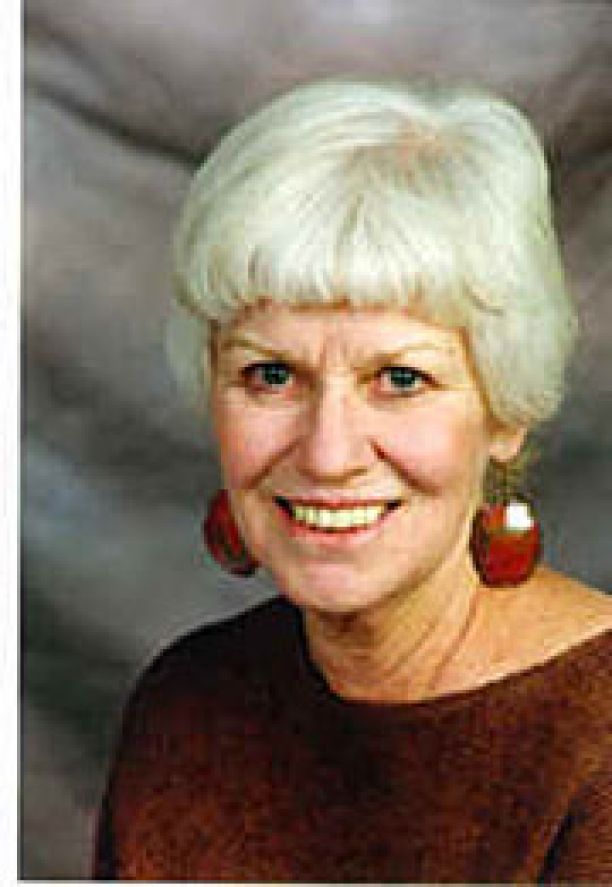
Audrey Holland
Speech and Hearing Sciences
University of Arizona
aholland166@gmail.com

|
Audrey Holland Speech and Hearing Sciences University of Arizona aholland166@gmail.com |
| Participants: | 4 |
| Type of Study: | Varied content (see below) |
| Location: | USA |
| Media type: | video |
| DOI: | doi:10.21415/T5QK6Q |
In accordance with TalkBank rules, any use of data from this corpus must be accompanied by at least one corpus reference. If none is given, please use the primary AphasiaBank reference:
MacWhinney, B., Fromm, D., Forbes, M. & Holland, A. (2011). AphasiaBank: Methods for studying discourse. Aphasiology, 25,1286-1307.
The individual in RRoss01 and RRoss02 was described in several papers:
Holland, A. & Ramage, A. (2004). Learning from Roger Ross: A clinical journey. In J. Duchan and S. Byng (Eds.), Challenging aphasia therapies. Hove UK: Psychology Press.
Holland, A., & Ross, R. (1999, revised 2007). The power of aphasia groups. In R.J. Elman (Ed)., Group treatment of neurogenic communication disorders. Boston: Butterworth-Heinemann.
RRoss01 and RRoss02:
RR has conduction aphasia, although its manifestation involved many incredibly unusual and important features that are really not necessarily what one finds in most individuals with conduction aphasia. In large measure, it could be concluded that he had virtually no access to his phonological lexicon, although his semantic system appeared to be totally intact (from a cognitive neuropsychological perspective). He was approximately 60 at the time of his stroke, and 7 years post stroke when I met him. I continued to follow him until his death in 2000 when he was 72 years of age. The samples are from an extended interview he gave in preparation for a one-minute public-service video about aphasia. The sample was further mined for a short video, a fundraiser for the University of Arizona aphasia clinic called "Living Successfully with aphasia: A conversation with Roger Ross." (It is available for $30.00 from the University of Arizona).
SWa and SWb files:
SW was approximately 58 years of age at the time of these recordings. She has classical Broca's aphasia (agrammatism, labored speech, slow and halting speech, relatively few verbs). Although she was not part of a formal research protocol, these samples came from my initial pilot work on scripting. The first is her pre-treatment recording, the second is her post-treatment recording, after approximately 3 weeks of treatment consisting of one half to one hour a day of home practice, and three clinical sessions.
jean files:
Jean was approximately 66 years old at the time of this taping. Her test results indicated a severe conduction aphasia; however, as can be seen from the tape much of her speech is jargon-like, and in the face of her quite good auditory comprehension, she is atypical of both conduction aphasia and most jargon aphasias. Although she had signed consent forms for participation in research projects conducted under the auspices of the National Center for Neurogenic Communication disorders, her unusual symptomatology resulted in her failure to meet criteria for inclusion. The sample here is from the Center's series of educational videos, called Telerounds. This is Telerounds 2: Severe Aphasia: Mining for Gold.
john files:
John is approximately 55, and has severe Broca aphasia. Again, he demonstrates a relatively classical pattern of slow and labored speech, agrammatism, more nouns than verbs. He is describing a picture from the BASA (Boston Assessment of Severe Aphasia). The interviewer is Nancy Helm-Estabrooks, and this is from Telerounds 10. (National Center for Neurogenic Communication Disorders videoseries). John was a frequent participant in most studies of aphasia conducted by Holland, Beeson et al. in the 1990's, but has never been the focus of an indepth published case study.